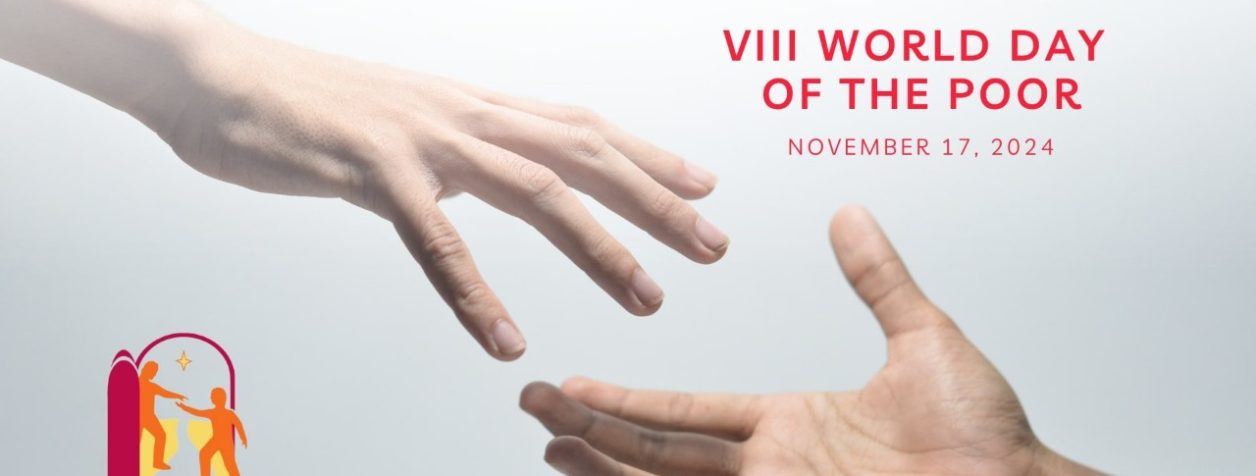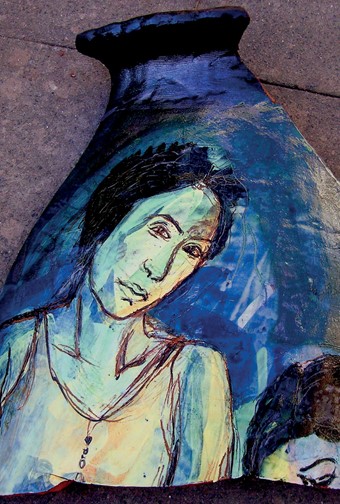On the feast of St Josephine Bakhita (8 February), William Neal, Detention Outreach Officer at JRS UK (CSAN member charity) reflects on what it means to accompany those who are held in detention.
Often when describing JRS’s mission to accompany refugees and other forcibly displaced persons, the emphasis is placed on the simple act of being present – of being with rather than doing for. Listening, without judgement and without an agenda, allows us to be open to any person sitting in front of us and to encounter them where they are in that moment. We come to know refugees as people with histories, skills and talents. Relationships are formed over time, and the team come to know refugees as friends, rather than clients or beneficiaries.
In listening to, and sharing in, a friend’s story we are left with a certain weight and certain responsibility. Those we accompany in detention, in Napier Barracks and in the community have faced immensely difficult challenges and times in their lives – lives which have forced them from their homes, separated them from family and involved perilous journeys to eventually end up in the UK – and they will carry a great deal of trauma. Sharing their story may bring to the surface pain which may have long been buried and can be a raw and emotional experience to re-live. In speaking to JRS it may be the first time they have felt able to share all or certain parts of their story, or they may have been required to re-tell it over and over again for various Home Office interviews, solicitor appointments and witness statements; reliving their traumatic past on multiple occasions. We leave carrying some of that emotional weight our friend has shared and, in doing so, we hope that in turn we have lifted some of that load from them.
We also leave with a weight of responsibility.
We carry with us the responsibility to serve our friends, to find the assistance they need in that moment to overcome some of the hardships they currently face. The responsibility to share their stories, to advocate for them and others facing a similar situation so that we can bring about change on an individual and systemic level. A responsibility to make others aware of the harsh reality our friends experience, often hidden from view, so that we become a more humane society that offers welcome to those who arrive in the UK to seek safety.
Repeated incidence of modern slavery
When I first joined JRS UK’s Detention Outreach team in 2019, we shared some of those stories when we were invited to give evidence to the Home Affairs Select Committee as part of their inquiry into modern slavery. We related the experiences of Vietnamese men we had accompanied in detention who had shared with us their stories of trafficking and exploitation in the UK. Stories of men who had become ensnared by trafficking gangs after leaving Vietnam on the promise of a better life, of stable employment and income that could be sent back to family they were having to leave behind. Of unknown journeys often tucked away in the back of lorries for days on end which eventually led to the UK. But rather than the opportunities for a better life they had been promised, they said they were taken to houses around the country, locked away, told to look after ‘houseplants’, no payment, no phone, no way out, and the threats of beatings or worse should they try to escape. Eventually our friends would be discovered in the cannabis farms by police, often alone. But instead of being provided with support that would bring an overdue end to their exploitation, they would be charged for drug production, found guilty by courts, convicted to months in prison before arriving in detention to be processed for deportation.
Despite a commitment by the UK to protect and support victims of modern slavery, these men had passed through many hands of a system that had not identified them as such.
At the time, there seemed a genuine willingness to change, such that potential victims of trafficking weren’t routinely detained. It was agreed that indefinite detention would re-traumatise individuals who had been exploited by traffickers, reminding them of the many years of captivity they may have already endured. It seemed sharing our friend’s story had helped to shine a light on this previously hidden issue.
However, the stories of Vietnamese men who have experienced trafficking and modern slavery have unfortunately continued to be a common occurrence in my time working with men in detention through the years.
In 2021 we supported 21 such men. Some shared very similar experiences as those we raised in 2019, others had been detained immediately after arriving in the UK and shared their stories of exploitation across China, Russia and Europe that may have continued in the UK. Even those identified as potential victims of trafficking and modern day slavery are no longer automatically considered for release as changes to the Adults at Risk policy, the policy designed to identify vulnerabilities in detention, has made it easier to maintain their detention. Unfortunately, things look set to only get worse as the UK Nationality and Borders Bill 2021 would bring in measures that I believe would make people seeking sanctuary more vulnerable to trafficking and modern slavery, make it harder to be identified as a potential victim and would penalise late disclosure.
St Josephine Bakhita, pray for us
On February 8 we commemorate St. Josephine Bakhita, Patron Saint for Victims of Modern Slavery and Human Trafficking. We take the opportunity to call to mind our friends in detention and all those who have experienced exploitation. We hold our friends in our thoughts and prayers that such exploitation should end, and ask for strength that through accompaniment we continue to fight for a system and society that listens without judgement to those who have experienced trafficking and slavery, and responds with support, not hostility.
The outlook may look dire but we continue our commitment to accompany those who have been forcibly displaced, who have been exploited in the UK or elsewhere, who have come to the UK in the search of safety.
The views in this blog post are not a statement of CSAN policy.




You must be logged in to post a comment.